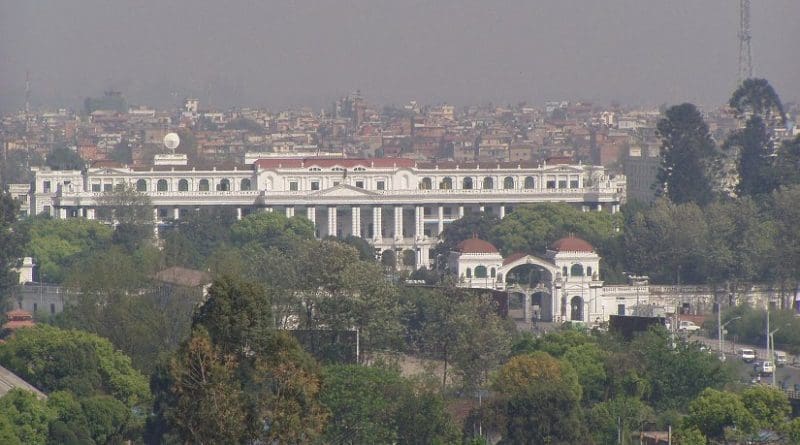Amending Constitution In Nepal: Why? What For And For Whom? – OpEd
The recent constitution amendment bill to change the boundary of provinces in the constitution registered as per Article 296 of the Constitution of Nepal at parliament by the government has brought turmoil to Nepal’s politics once again. Many political parties, including the main opposition CPN (UML), have obstructed parliamentary meetings since then. Many questions must be asked today: what makes the present Maoist government take such drastic action without greater political consultation? Why amendment in the first place? Most importantly, why is this amendment being proposed when the Madhesi parties themselves, at which the amendment is targeted, are not happy with the idea? It indicates many more things.
Firstly, the new constitution has barely started its life. We have not yet tested its efficiency. We have not tried to implement any of its provisions. Is it not fundamentally wrong to amend the constitution without testing it in practice? Does the amendment bill not go against the principle of constitutionalism itself? I strongly believe that the constitution as the supreme law of the land should be amended only to fill any remaining gaps found in implementation or to address people’s changed sentiments over a period of time or to change the fundamental structures of the state. How at this time can we know if there are lapses or gaps within the constitution without trying to implement it in the first place?
Since the proposed bill was tabled at the House, in many parts of the country, educational institutions and industries have remained closed and vehicles have stayed off the roads. Thousands of people poured onto the streets and chanted slogans against the move. Moreover, life in many parts of the country has continued to remain crippled owing to the shutdown called by people to protest against the proposed bill. It has effectively pushed the nation towards another political confrontation. Where is the respect of consultation politics? Where is the respect for the views of locals? Where is the democracy?
Secondly, the whole nation is asking many questions today regarding this issue: whose interests are the present government serving? I believe, however, that the constitution amendment process is a purely internal-political matter. It is nothing to do with our neighbours or other foreign powers. The whole nation is wondering what prompted Prachanda even to register the proposed amendment bill. What forces him to take such drastic action? Is he truly guided by the interests of the nation and of its people? Was he under pressure to register the bill despite protests against it from various quarters? Most importantly has the government made any effort at political consultation before tabling the amendment bill in the parliament?
Finally, I strongly believe that the amendment bill to the constitution promulgated by 90 percent of the people’s representatives is anti-national, unconstitutional, politically short-sighted and flawed. The consequences will be grave and far reaching. The bill has already polarised society further and created conflict between the different political forces. It seems as though consensus politics is a thing of the past in our country.
Our constitution was achieved in a most democratic manner through the Constituent Assembly, and it was endorsed by an overwhelming majority in the House. As I have already argued elsewhere, this constitution is progressive, inclusive and people oriented in many of its aspects. It has already created all kinds of civil, political and economic and social human rights. Only the effective enforcement of these provisions on time can fulfil these rights for the people. But without even trying proper enforcement, the proposed amendment process can only bring about a constitutional crisis and political instability. This will be most unfortunate for the country.
If we are to uphold the democratic system established by our constitution, the only way to put the country back on the right track is by consensus and cooperation among the political forces. Amending the constitution is a serious matter: It must not be undertaken lightly. It is not just an issue for the political parties. It is a matter of great public interest, indeed a national interest, and it will have huge consequences politically, socially and economically over the course of the future. We must ask ourselves very seriously: amending the constitution why, for what and for whom? Why now?
Whatever happens, the country and the people must be the winners. Social integrity and cohesion must be maintained. We must defeat those individuals and unknown powers who are trying to divide us, divide our values and divide the country itself in the name of amending constitution. The constitution must continue to serve the purposes of the nation as a whole and of the people themselves.

